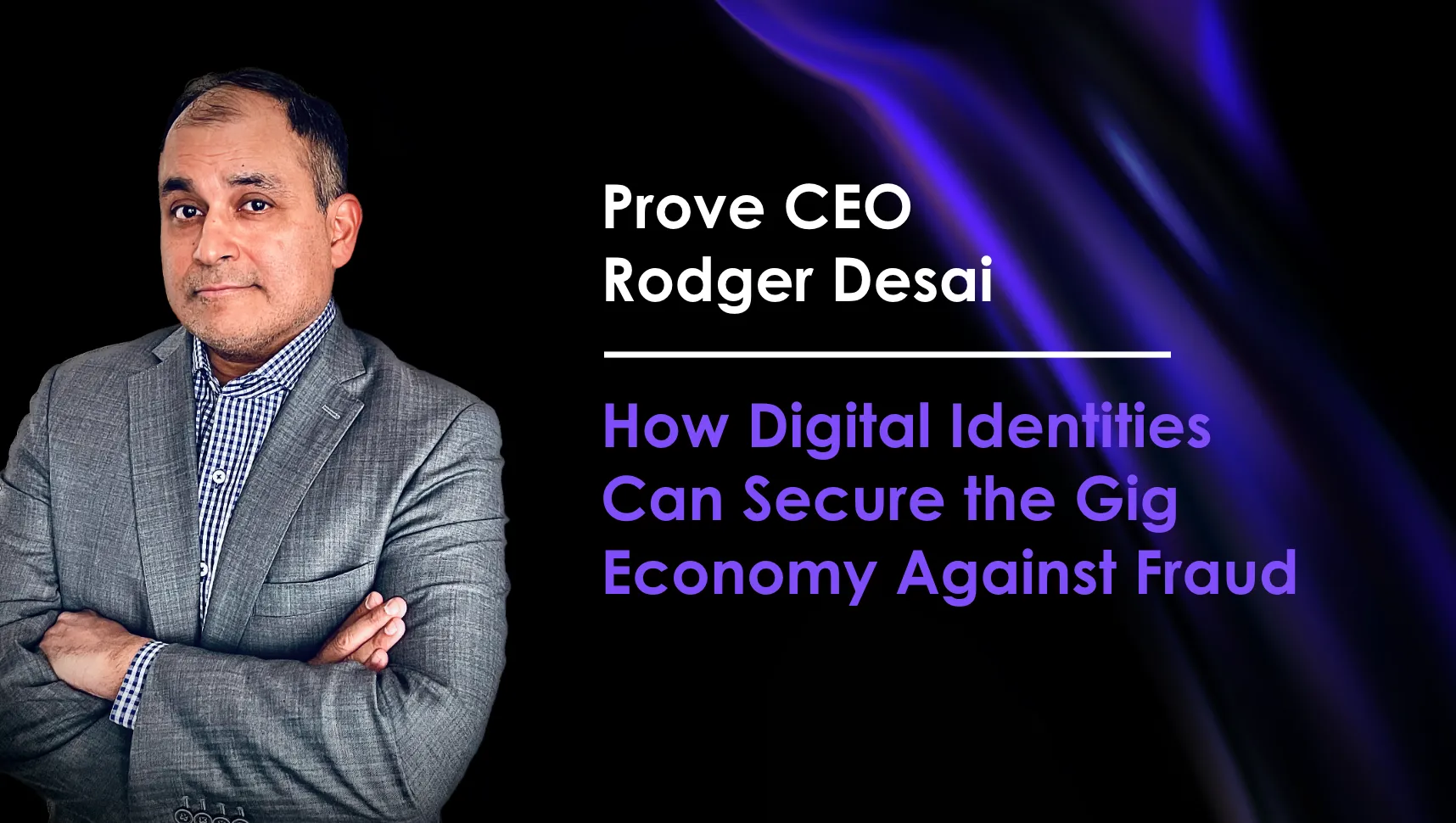Gig Economy Fraud: Can Digital Identities Be the Solution?


The gig economy, worth half a trillion dollars in 2023 and employing a significant portion of the U.S. workforce, has become a prime target for fraudsters seeking to exploit its open and accessible nature. With a staggering one-third of US consumers reporting being victims of fraud on gig platforms, the need for robust security measures is more pressing than ever.
Prove CEO Rodger Desai has a unique perspective on this issue. As the head of a leading identity verification solution provider, he is spearheading efforts to help companies in a variety of industries to improve their digital defenses through identity verification. Desai was recently featured in a segment of PYMNTS TV to explain how digital identities can secure the gig economy against fraud.

In the interview, Desai explained that marketplaces provide an environment that is ripe for exploitation. Think about it this way: it is relatively easy to join platforms like DoorDash and Uber, and users are given considerable anonymity. Knowing that, fraudsters can create multiple fake accounts or impersonate others, making it challenging to track and hold them accountable.
Balancing security with the gig economy's demand for rapid onboarding and user convenience presents a unique challenge. Desai points out that striking this balance is critical to combating fraud effectively without hindering the user experience that drives the gig economy's success.
The Essential Ingredient of Trust
As the gig economy expands, so does the sophistication of fraudsters' tactics. Phishing scams, account takeovers, synthetic identity fraud, and even fake reviews highlight the ever-evolving threat landscape within this sector. Fraudsters are constantly adapting, exploiting new technologies and vulnerabilities to stay ahead of security measures.
In the face of these challenges, Desai proposes leveraging established trust networks, similar to those used by credit card companies and mobile phone operators. These networks create a "circle of trust" where transactions and interactions are verified, regardless of location or currency. Applying this concept to the gig economy could be a game-changer.
In the interview, Desai envisions a system where users maintain anonymity through pseudonyms but are still verified by the platform, indicated by a check mark next to their name. This approach fosters accountability while preserving privacy. Users would remain anonymous unless they violate platform rules or laws, at which point the platform could "break the glass" and reveal their true identity.
This system hinges on phone-based verification. As Desai explains, Prove has developed technology that links phone numbers to real-world user identities with remarkable accuracy, even as users change devices or numbers. This persistent identity token could provide the foundation for a robust and enduring ID verification system.
In essence, Desai advocates for a proactive and adaptable approach to security in the gig economy. By implementing a multi-layered system that combines established trust networks with innovative technologies, platforms can deter fraudsters and create a safer environment for all users.
Using Phone-Based Identification to Establish Trust & Safety
Desai explains his proposed approach that notably allows for a flexible range of information sharing. Users can opt to share minimal data, simply confirming their human status, or provide more extensive details like spending habits and travel preferences, depending on their comfort level and the incentives offered by the platform.
However, implementing such a system is not without its hurdles. Widespread adoption is crucial for its effectiveness, and platforms would need to meticulously integrate it into their terms of service. Additionally, ensuring global verification poses a challenge due to significant variations in identity documentation and phone usage practices across the world.
Despite these challenges, Desai emphasized the vital need for such a system, highlighting Prove's recent foray into this realm of trust and safety within the gig economy. With the rise of AI-generated content and deepfakes, verifying the authenticity of both users and content becomes even more critical.
The future of such systems remains uncertain, but one thing is clear: As fraud in the gig economy and beyond continues to escalate, innovative approaches to digital identity and verification will be indispensable in maintaining trust in the digital sphere.
Desai envisions a future where verification extends beyond user profiles to encompass content itself. He predicts that trust will increasingly rely on verified and signed information, underscoring the growing importance of robust authentication in an increasingly digital world.
Check out the interview on PYMNTS TV.

Keep reading
 Read the article: Why Prove Matters When Identity Data Leaks Become Critical Infrastructure Failures
Read the article: Why Prove Matters When Identity Data Leaks Become Critical Infrastructure FailuresAs large-scale data breaches expose billions of identity records, traditional identity verification and KYC models fail under automated fraud, making cryptographically anchored, persistent digital identity critical infrastructure.
 Read the article: How Prove’s Global Fraud Policy Stops Phone-Based Fraud Others Miss
Read the article: How Prove’s Global Fraud Policy Stops Phone-Based Fraud Others MissLearn how Prove’s Global Fraud Policy (GFP) uses an adaptive, always-on engine to detect modern phone-based threats like recycled number fraud and eSIM abuse. Discover how organizations can secure account openings and recoveries without increasing user friction.
 Read the article: Prove Supports Safer Internet Day: Championing a Safer, More Trustworthy Digital World
Read the article: Prove Supports Safer Internet Day: Championing a Safer, More Trustworthy Digital WorldProve proudly supports the goals and initiatives behind Safer Internet Day, a worldwide effort that brings together individuals, organizations, educators, governments, and businesses to promote the safe and positive use of digital technology for all, especially young people and vulnerable users.












